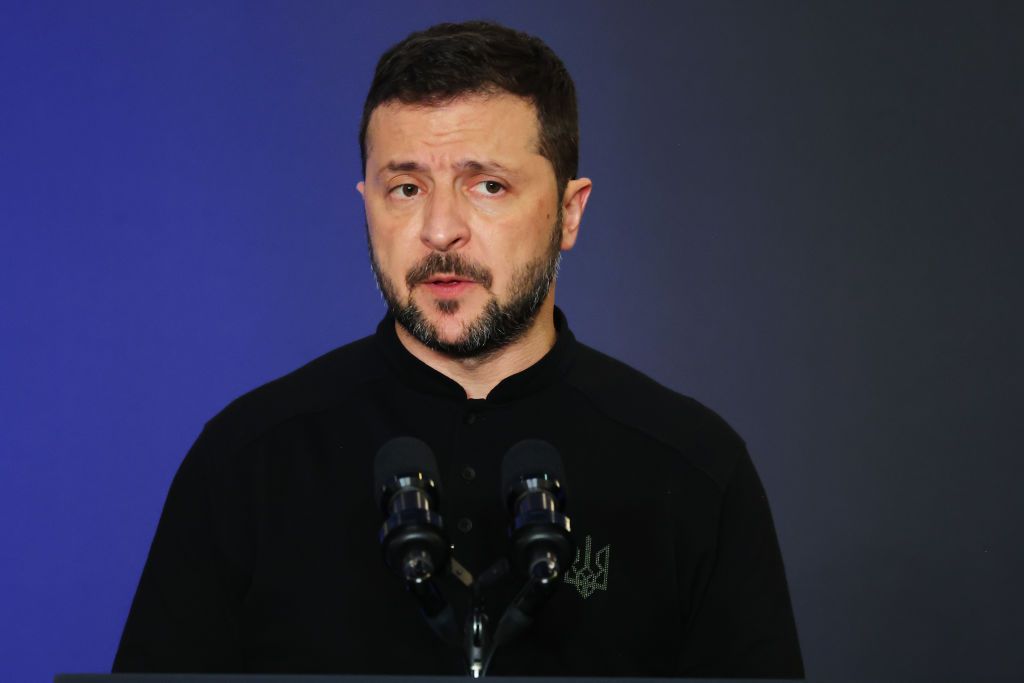The White House is concerned about President Volodymyr Zelensky’s victory plan for Ukraine lacking a clear strategy to win against Russia. Zelensky is set to present his plan to President Joe Biden and Vice President Kamala Harris, including military and diplomatic components like Ukraine’s invitation to join NATO. Some officials feel the plan focuses too much on requesting weapons and lifting long-range missile restrictions, which may not impress the U.S. and Western countries. White House officials worry that Zelensky’s plan does not provide clear steps for Biden to support in his remaining months in office. The Biden administration has been hesitant to grant Ukraine wider permission to use U.S.-supplied weapons on Russian territory due to fear of escalating tensions with Moscow.
Russian President Vladimir Putin’s nuclear warnings ahead of Zelensky’s visit to the White House include potential changes to Russia’s nuclear doctrine, stating that any aggression by a non-nuclear state with a nuclear state could be seen as a joint attack against Russia. This comes as the U.S. and U.K. consider shifting their positions on long-range strikes and easing current restrictions. Biden has announced plans to accelerate support for Ukraine’s military during Zelensky’s visit, including over $8 billion in military aid for Kyiv. The details of Zelensky’s victory plan have not been fully publicized, with concerns that it lacks actionable steps and may not sufficiently address the ongoing conflict with Russia.
More than 2.5 years into Russia’s full-scale invasion of Ukraine, with ongoing advances and missile attacks, Kyiv faces the choice of territorial concessions for an unjust peace or preparing for a prolonged war. Zelensky’s victory plan aims to strengthen Ukraine’s negotiating position and push Russia towards a fair peace. However, some officials think the plan relies too heavily on requesting weapons and lifting restrictions on long-range strikes, which may not impress U.S. and Western countries. The Biden administration has been cautious about granting wider permission for Ukraine to use U.S.-supplied weapons on Russian territory, citing concerns about escalation with Moscow and the potential impact on the conflict.
Putin’s nuclear warnings and proposed changes to Russia’s nuclear doctrine add a layer of complexity to Zelensky’s visit to the White House and the discussions around Ukraine’s victory plan. The U.S. and U.K. are reportedly considering adjustments to their positions on long-range strikes and restrictions. Biden has announced plans to provide significant military aid to Ukraine during Zelensky’s visit, highlighting the ongoing support for Kyiv in its conflict with Russia. The details and effectiveness of Zelensky’s plan remain under scrutiny, with concerns about its ability to address the challenges Ukraine faces in the conflict and negotiations with Russia. The White House is looking for clear and actionable steps in the plan that Biden can support during his remaining time in office.
Overall, the concerns raised by U.S. and European officials about Zelensky’s victory plan for Ukraine highlight the complexities of the conflict with Russia and the ongoing challenges faced by Kyiv. The focus on military and diplomatic components, including Ukraine’s potential NATO membership, raises questions about the effectiveness and feasibility of the plan. With tensions escalating and Putin’s nuclear warnings adding to the uncertainty, the White House is seeking clear steps and strategies that can advance Ukraine’s position in negotiations with Russia. The $8 billion in military aid promised by Biden underscores the ongoing commitment to supporting Ukraine in its efforts to defend against Russian aggression. As Zelensky presents his plan to Biden and Harris, the hope is that it will provide a roadmap for strengthening Ukraine’s position and achieving a just peace in the conflict.


